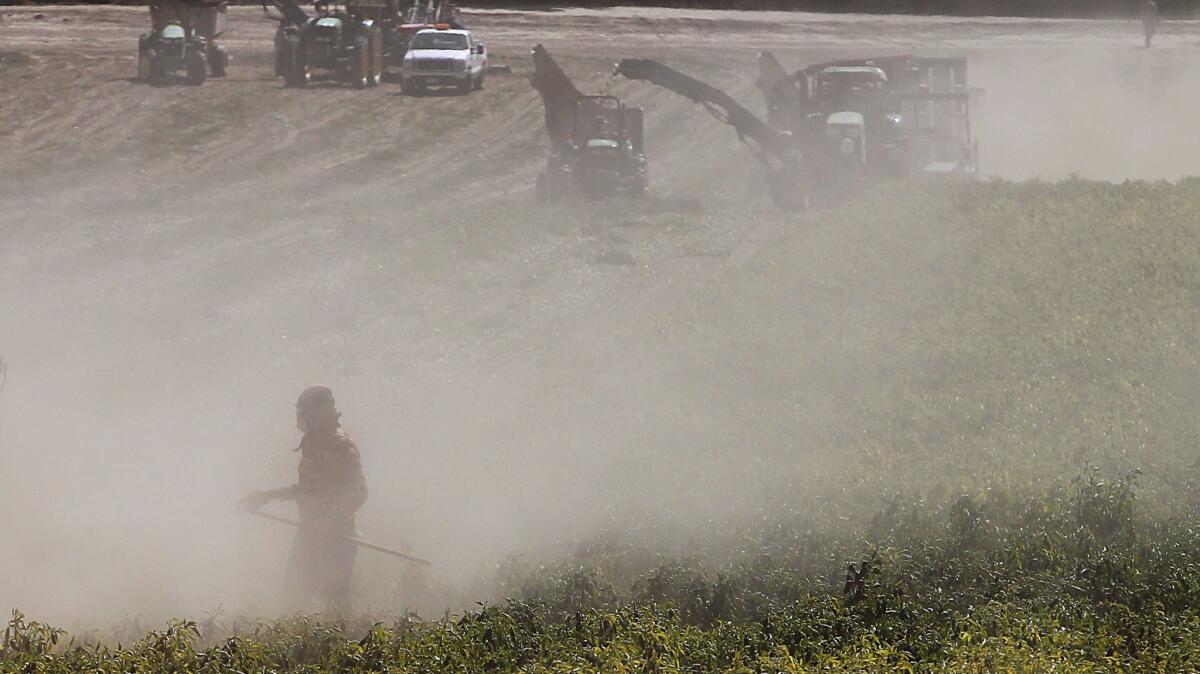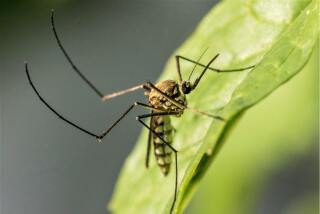In California, an unexplained increase in valley fever this year

This year is shaping up to be the worst on record in California for people infected with valley fever, a lung infection caused by a fungus found in soil.
State health officials announced earlier that 2016 broke the record for the most valley fever cases reported since the state started keeping count in 1995. Now, 2017 is on pace to have even more infections.
From January through October, 5,121 cases were reported to the state health department, compared with 3,827 cases during the same period in 2016.
People contract valley fever by breathing in dust that contains a fungus called Coccidioides, which is common in semiarid regions of the country. So although anyone can get valley fever, people who work in fields or construction sites where soil gets kicked up are particularly at risk.
Health officials said Tuesday that they didn’t know why cases were increasing. Experts have said the rise in valley fever — which has increased nationwide in recent years — could be linked to climate change or droughts because hotter and drier weather leads to more dust in the air.
“With an increase in reported valley fever cases, it is important that people living, working, and travelling in California are aware of its symptoms, especially in the southern San Joaquin Valley and the Central Coast, where it is most common,” state health department director Dr. Karen Smith said in a statement.
The California counties with the highest rates of infection include San Luis Obispo, Merced, Fresno, Kern, Madera and Tulare. There have been fatal outbreaks of valley fever at prisons in the Central Valley in recent years.
Most people who contract valley fever don’t have symptoms, but those who do might experience fever, cough, chest pain, headaches and weight loss. The disease often is misdiagnosed because it resembles so many other illnesses, experts say. Health officials recommend that if people have had a cough, fever or painful breathing for more than two weeks, they should ask their doctor about valley fever.
The illness can’t be passed from person to person. People with the highest risk of being infected are adults 60 and older, pregnant women, people with weakened immune systems including diabetics and African Americans and Filipinos, health officials say.
Nationwide, valley fever is most common in California, Arizona, Nevada, New Mexico and Utah, according to the U.S. Centers for Disease Control and Prevention.
Twitter: @skarlamangla
ALSO
Gay and bisexual men at higher risk of hepatitis A in L.A. County as outbreak grows
Why hasn’t California cracked down on anti-vaccination doctors?
L.A. County death toll from West Nile virus climbs to 17
More to Read
Sign up for Essential California
The most important California stories and recommendations in your inbox every morning.
You may occasionally receive promotional content from the Los Angeles Times.











